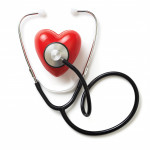Among people who meet the criteria for a cholesterol-lowering statin medication, those living with HIV are less likely to receive such prescriptions than HIV-negative individuals.
Elif Özdener-Poyraz, PharmD, an assistant professor of pharmacy practice at Fairleigh Dickinson University in Florham Park, New Jersey, and her colleagues reviewed the medical charts of 150 people with HIV and a matched group of HIV-negative individuals.
Of the 37 HIV-positive people who met the criteria for receiving a statin, 54% were actually prescribed one. Of the 105 HIV-negative individuals with such an indication, 90% received one.
Twelve HIV-positive and 16 HIV-negative people met the criteria for low-dose aspirin therapy. A respective 33% and 50% of these eligible individuals were prescribed such treatment.
Smoking was much more common in the HIV-positive group. Of the 57 current smokers in that group, 82% received smoking cessation counseling during the previous year, compared with 76% of the 17 HIV-negative smokers.
The study authors speculated that the reason preventive treatment for cardiovascular disease was underprescribed in the HIV-positive group was that addressing such matters was a lower priority due to limited time. By comparison, physicians may have had more time to discuss prevention during primary care visits with HIV-negative people.
“Our study results highlight the importance of linking patients with HIV infection to primary care providers where preventive cardiovascular care needs can be emphasized and addressed,” says Özdener-Poyraz.







Comments
Comments